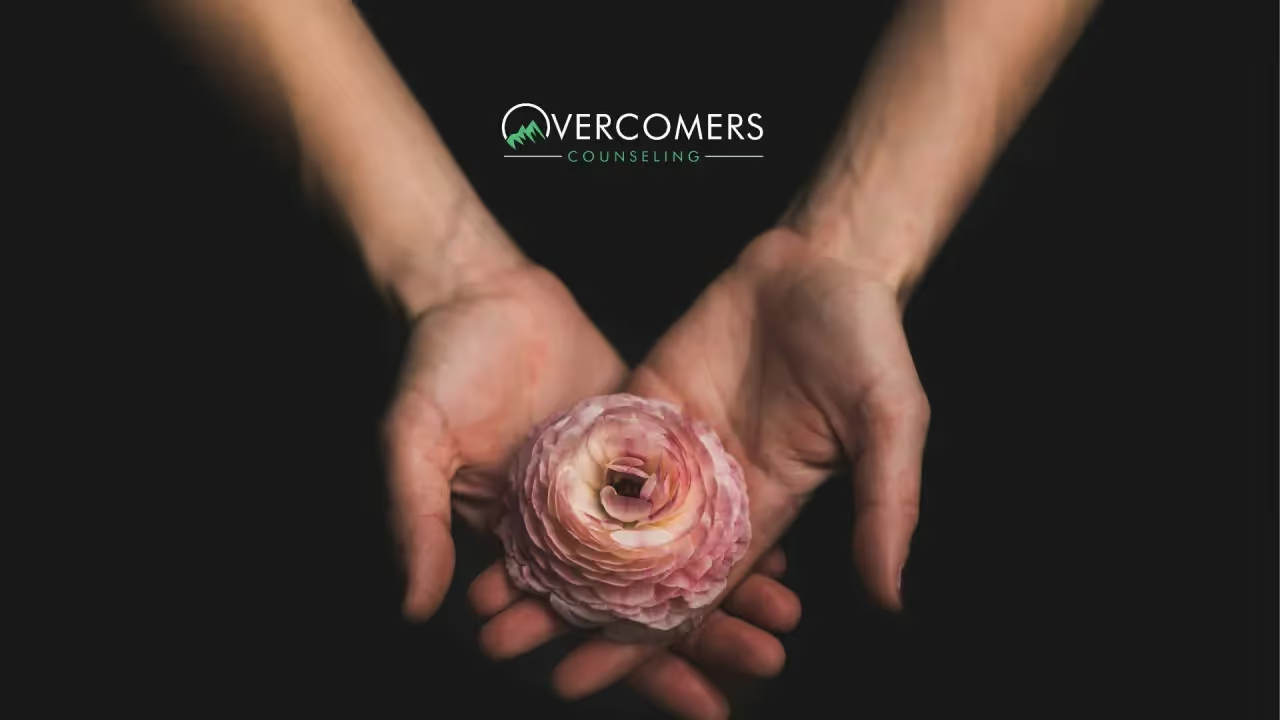Grief counseling is a critical resource for those navigating the profound emotional journey that follows the loss of a loved one. However, for individuals...

Grief counseling is a critical resource for those navigating the profound emotional journey that follows the loss of a loved one.
However, for individuals already grappling with an anxiety disorder, the process of grief can be particularly complex and challenging.
The coexistence of grief and anxiety can create a unique set of struggles, making it crucial to approach healing thoughtfully.
Grief counseling can offer valuable support, helping individuals manage their symptoms and cope with loss.
Acknowledging the need for help is the first significant step in preparing for grief counseling when you're dealing with an anxiety disorder.
It's normal to feel overwhelmed by grief and anxiety, and sometimes, these feelings can be so intense that they interfere with your daily life.
Recognizing that you're struggling is not a sign of weakness, but rather an acknowledgment of your humanity and the complexity of your emotions.
This acceptance allows you to reach out to professionals who are trained to help navigate through this challenging time.
Grief counselors can provide the necessary tools and strategies to cope with your loss, and if you have an anxiety disorder, they can tailor their approach to address your specific needs.
First, consider the counselor's qualifications and experience, particularly in dealing with grief and anxiety disorders.
A counselor who understands the intersection of these two issues can provide more targeted support.
Second, think about their approach to therapy. Some counselors may use cognitive-behavioral therapy, while others might employ mindfulness-based strategies.
It's essential to choose a counselor whose approach resonates with you.
Third, consider practical factors such as location, availability, and whether they accept your insurance.
Lastly, trust your gut feeling. During your initial consultation, pay attention to how comfortable you feel with the counselor.
The therapeutic relationship is built on trust, so it's important to choose a counselor with whom you feel safe and understood.
Understand that grief counseling is not a quick fix, but rather a journey that takes time and patience.
The goal of grief counseling isn't to eliminate your grief or anxiety entirely but to help you manage these feelings in healthier ways and move toward healing at your own pace.
Progress may look different for everyone and can often be non-linear, with good days and bad days.
Also, important to notice that feeling uncomfortable during sessions is normal and part of the healing process, as you'll be exploring painful emotions and challenging thoughts.
Understand that the role of the counselor is not to give advice or solutions, but to provide support, understanding, and professional guidance as you navigate your unique grief journey.
Cognitive-Behavioral Therapy (CBT) is a commonly used technique in grief counseling for individuals with anxiety disorder.
It focuses on identifying and changing negative thought patterns that exacerbate grief and anxiety.
The goal is to help individuals develop healthier thinking patterns and coping strategies.
Exposure therapy is another technique that can be particularly effective for those dealing with anxiety disorders.
This method involves gradually and repeatedly exposing individuals to thoughts, experiences, or situations that trigger anxiety or grief.
Over time, this exposure can help reduce the fear and distress associated with these triggers.
Mindfulness and relaxation techniques are also crucial tools in managing both grief and anxiety.
These techniques involve focusing on the present moment, accepting it without judgment, and using relaxation exercises such as deep breathing, progressive muscle relaxation, or guided imagery.

During grief counseling, the initial sessions typically involve an assessment of your emotional state, understanding your personal experience of loss, and setting goals for therapy.
You'll discuss your feelings, thoughts, and behaviors associated with the loss. The counselor will employ various therapeutic techniques based on your unique needs and symptoms.
As sessions progress, you'll work on coping strategies to deal with your grief and any accompanying emotions like anxiety or depression.
Setbacks are a normal part of the grief counseling process. Grief is not linear, and there will be days when you feel like you're regressing.
In the long term, grief counseling aims to equip you with the tools to manage your grief independently.
This doesn't mean the pain of loss will completely disappear, but rather that you'll learn healthier ways to cope and continue living meaningfully.
The ultimate goal is to reach a point of acceptance and find renewed purpose, allowing you to carry your loss without letting it dominate your life.
Approaching grief counseling with an existing anxiety disorder can be challenging but is certainly not insurmountable.
Understand that both grief and anxiety are valid experiences that deserve attention and care.
The intersection of grief and anxiety may require specialized therapeutic techniques, like cognitive-behavioral therapy or exposure therapy, to effectively navigate the healing process.
Self-care strategies also play a crucial role in managing symptoms and promoting recovery.
It's okay to seek help and it's okay to struggle; what matters is your commitment to the journey of healing.
Some signs that you may be ready to move on include feeling at peace with the breakup, no longer regularly thinking about your ex, and having a renewed sense of optimism. Ultimately, only you can decide when you're ready to start dating again or take other steps toward moving on.
There are a few things you should avoid saying to someone who is grieving, as they can come across as insensitive or unhelpful. For example, don't tell them that it's "time to move on" or that they "should be over it by now." It's also best not to make any assumptions about how they're feeling or what they need – instead, ask them directly how you can help.
Dealing with grief involves allowing yourself to experience grief, seeking support from family members or a mental health professional, and taking care of your physical health. It's also important to remember that everyone grieves differently and there's no "right" way to grieve.
The stages of grief, according to the Kübler-Ross model, include denial, anger, bargaining, depression, and acceptance. However, it's important to note that not everyone will experience all these stages, or in this order. Grief is a highly individual process.
Complicated grief, also known as prolonged grief disorder, is when intense grief symptoms continue for an extended period, often longer than six months. This type of grief can result in difficulty resuming normal life activities and can lead to sleep problems.
There are many healthy ways to cope with the pain of a breakup. Some strategies include engaging in self-care activities, writing in a journal, reaching out to loved ones for support, and reframing your perspective. Additionally, seeking professional help can be an important step toward healing after a breakup.